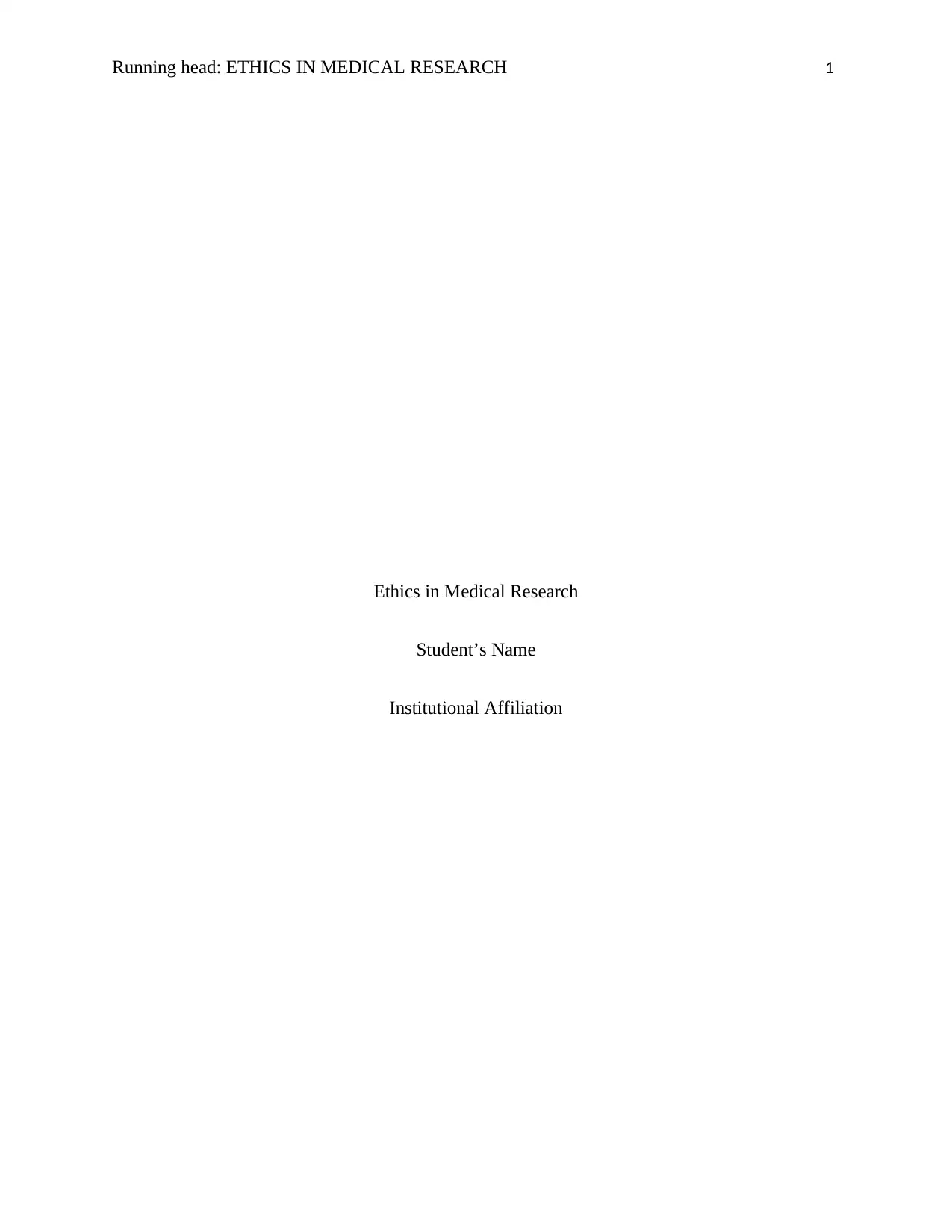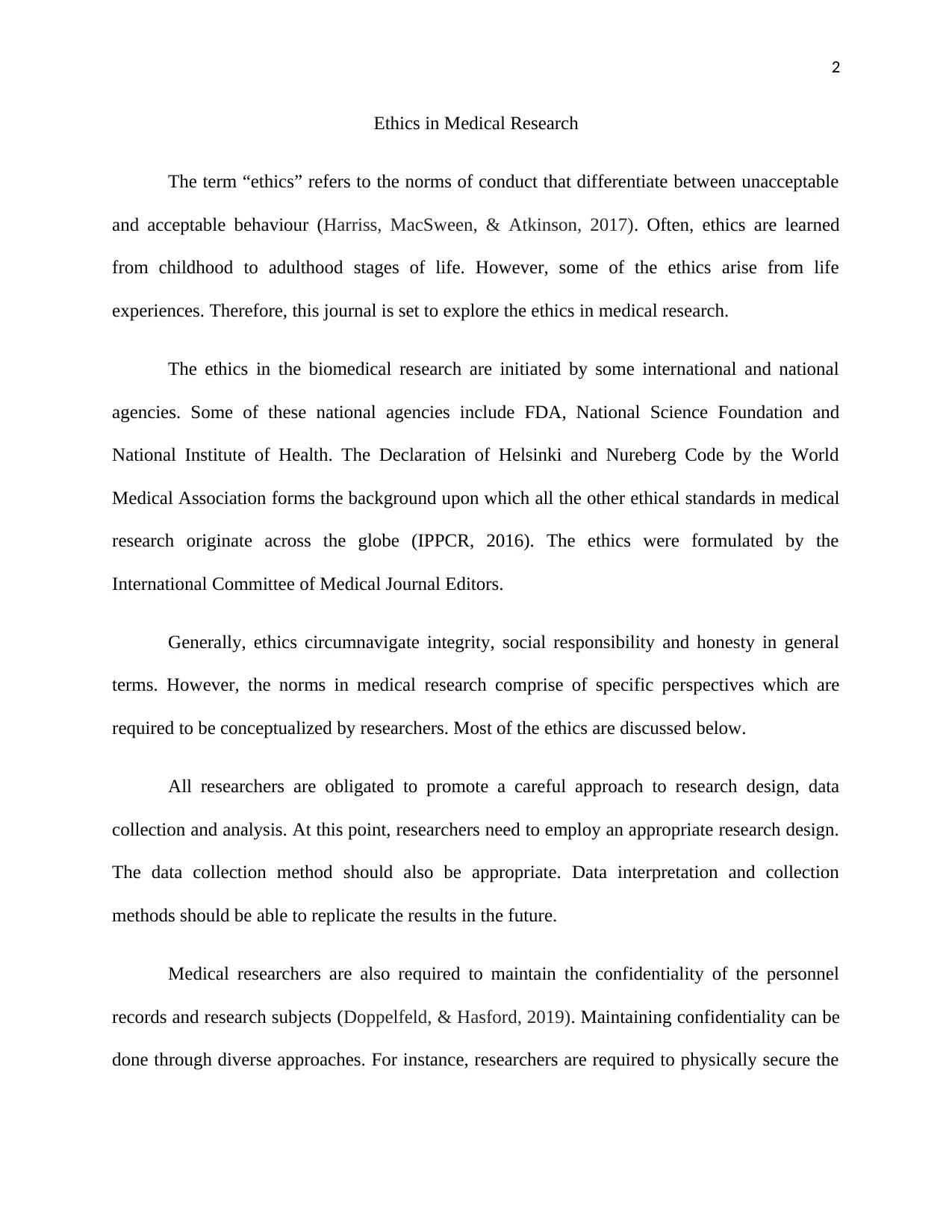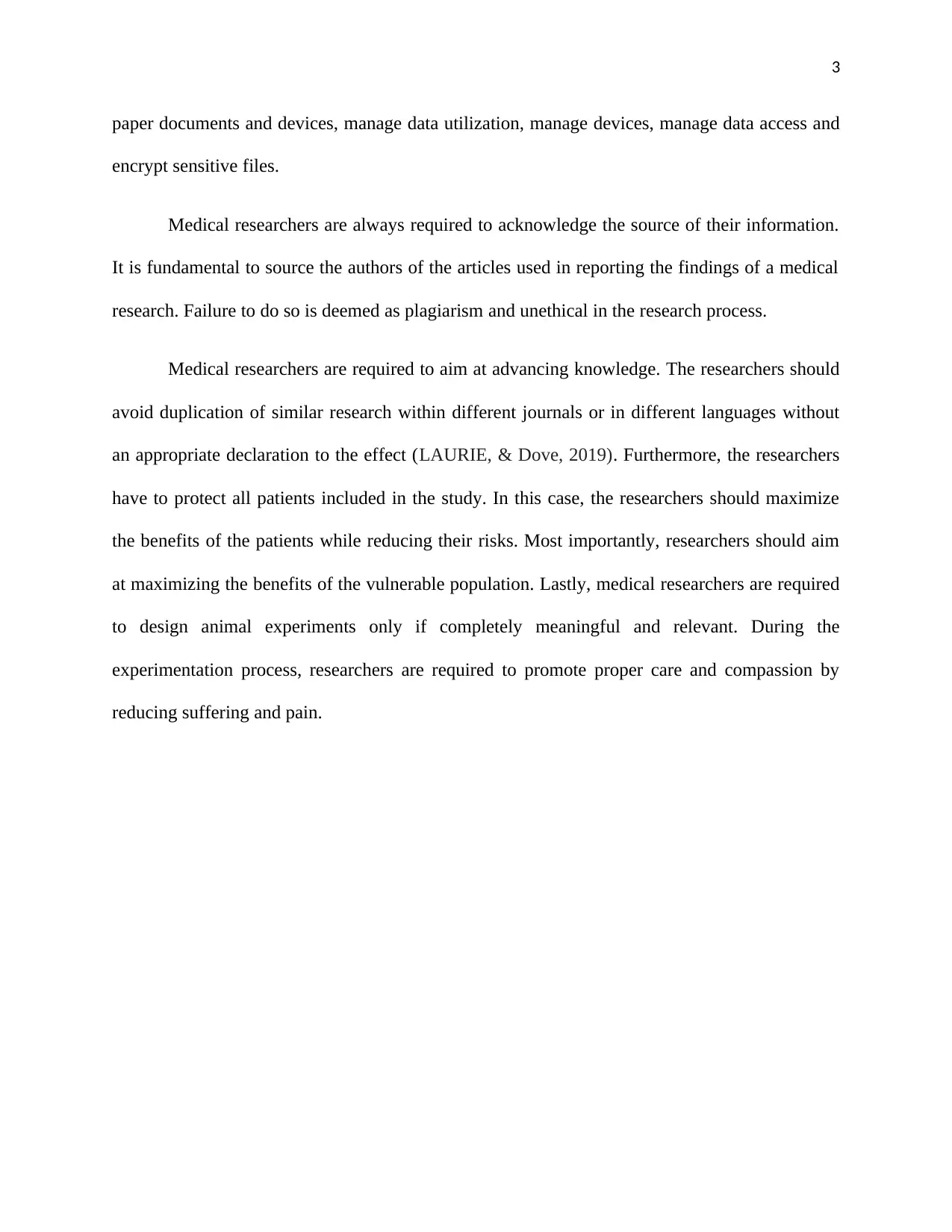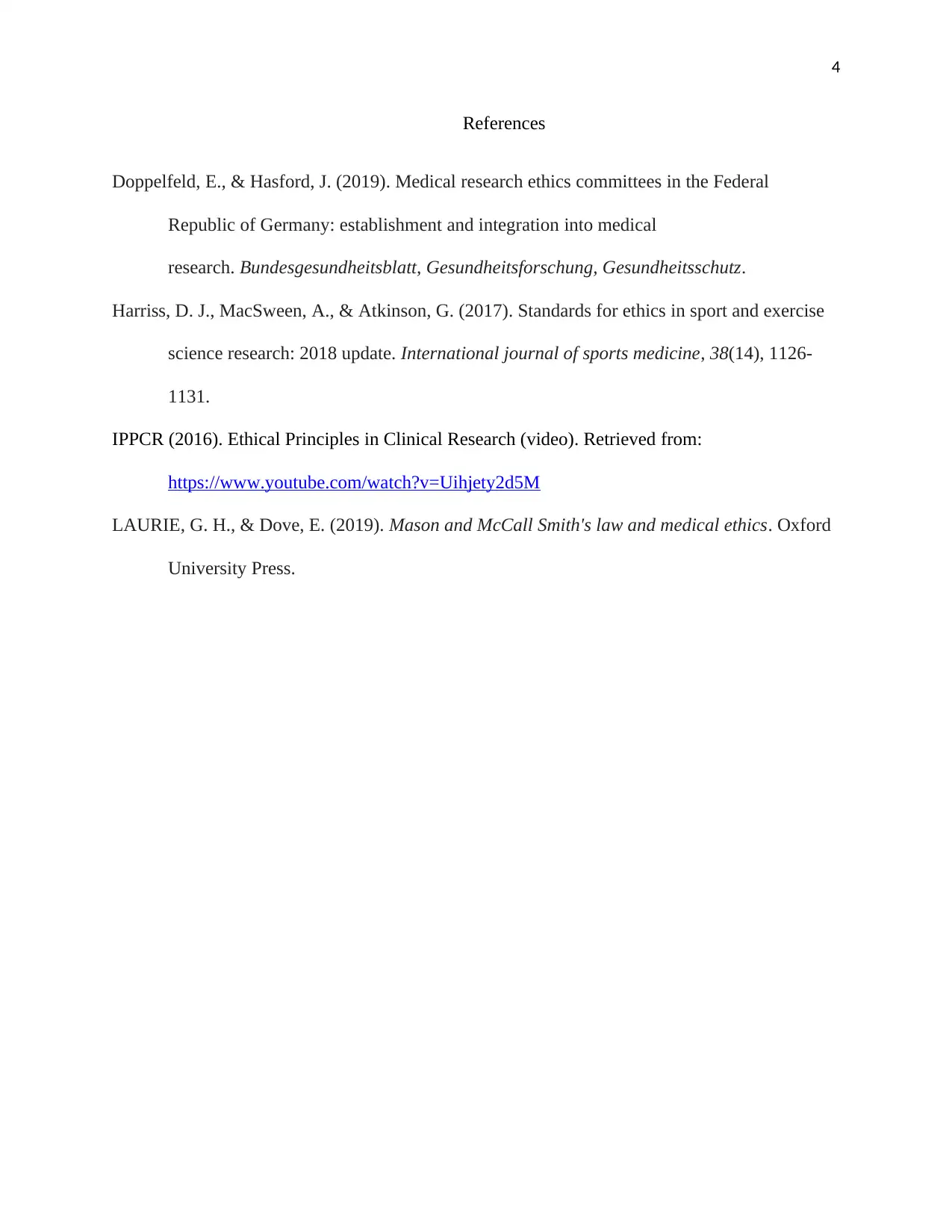Ethics in Medical Research: Principles, Challenges, and Guidelines
VerifiedAdded on 2022/10/19
|4
|635
|9
Essay
AI Summary
This essay delves into the critical realm of ethics in medical research, emphasizing the norms that distinguish acceptable from unacceptable behavior. It highlights the influence of international and national agencies, such as the FDA and the National Institute of Health, and foundational documents like the Declaration of Helsinki and the Nureberg Code. The discussion covers key ethical aspects, including integrity, social responsibility, and honesty, with specific attention to research design, data collection and analysis, and the importance of maintaining confidentiality of personnel records and research subjects. The essay underscores the necessity of acknowledging information sources to avoid plagiarism, advancing knowledge through original research, and protecting patient welfare by maximizing benefits while minimizing risks. Additionally, it addresses the ethical considerations in animal experimentation, advocating for compassionate care and pain reduction. The student solution provides insights into the ethical responsibilities of medical researchers and the importance of upholding these standards in the pursuit of scientific advancement.
1 out of 4







![[object Object]](/_next/static/media/star-bottom.7253800d.svg)